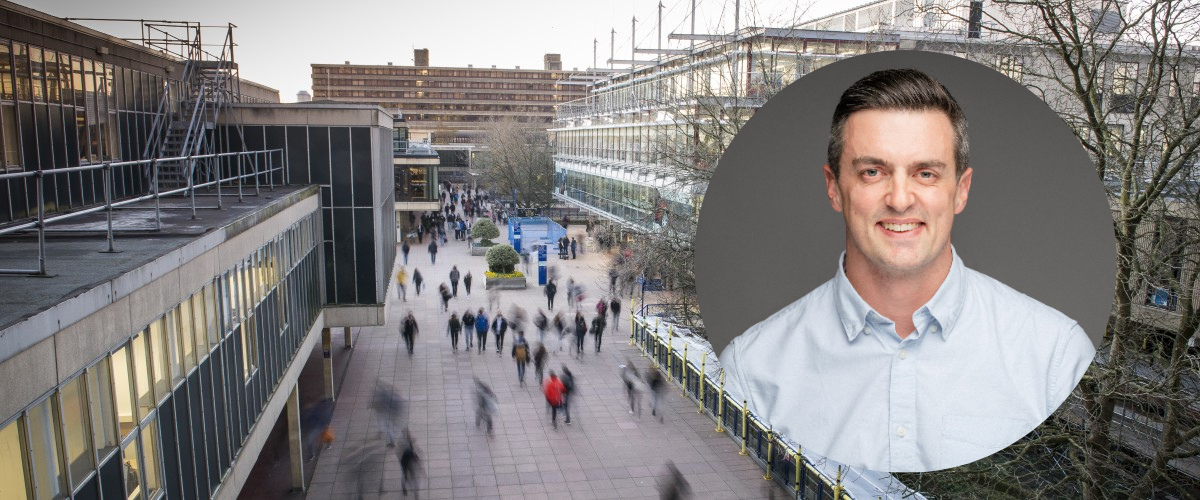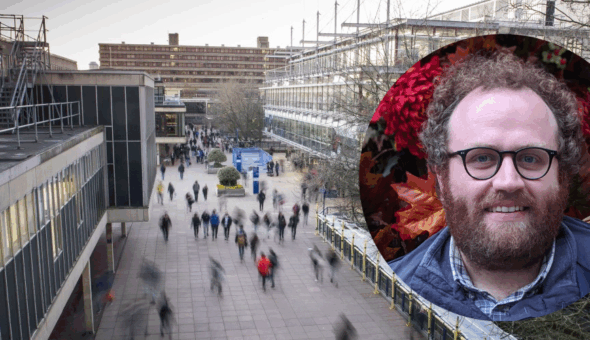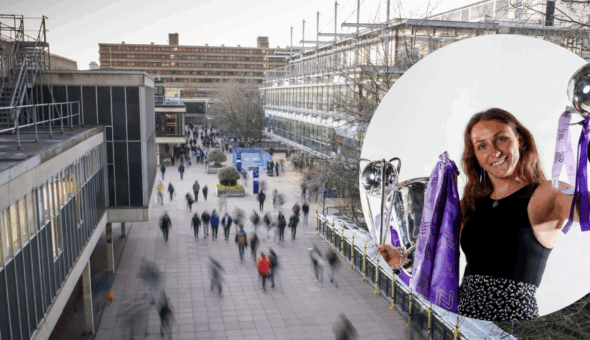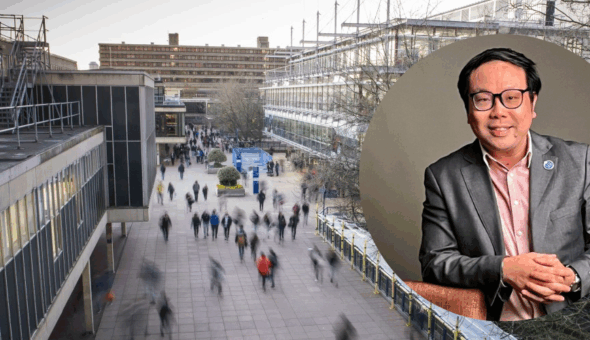Tim’s Ackroyd's Bath days were a mix of psychology lectures and Wednesday night socials, with plenty of time spent playing hockey. He credits Bath for giving him the confidence that’s carried him through an international career.
Today, Tim's at the forefront of workplace mental health provision at Deloitte, advising global organisations and helping to create more compassionate and inclusive environments.
Read as he reflects on the moments that mattered – from dressing up for Score to meeting royalty – and why saying ‘yes’ to the unexpected has made all the difference.
Why did you choose to study at Bath?
I wanted to go to Bath ever since visiting on an open day. Walking around the campus and city, I instantly felt it was where I wanted to be. I didn’t think I’d get the grades for the course, but after better-than-expected A-level results, I reapplied.
Bath was a top university and the psychology department was one of the best in the UK. The third-year placement opportunity was especially important to me. The world-class sports facilities were another big draw.
Did you have a particular career in mind when you chose your course?
I initially wanted to be a Sports Psychologist, an interest sparked during my A-levels. I spent my placement year in Melbourne working on projects with Cricket Australia and smaller AFL clubs. Sport psychology was niche, so I also explored health psychology.
After graduating and returning to Australia, jobs in sports psychology were hard to find. I joined a small professional services firm that let me apply my degree in a new way and stay in Australia with a sponsorship. That pivot led me to talent development and research, working with 'corporate athletes' instead. Looking back, I’m really happy with how it turned out.
Can you tell us about your experience of studying here? Any favourite memories, or places to go on campus and in the city?
Many of my memories are tied to the hockey club – dressing up for Score every Wednesday and playing matches across the West Country. I probably played way more hockey than I should have in my first year! In second year, I buckled down, and after my placement, I found my groove academically and my grades shot up.
Summer in Bath was amazing. Hanging out with friends by the lake, drinks at the Parade Bar, parties on the river and nights out at Blue Rooms. I had a great group of friends from my course and hockey, and I’m still close to many of them to this day. I was also there when Team Bath FC reached the first round of the FA Cup – the first university to do so!
Describe your career journey since graduating. What is a typical day like in your current role?
After graduating, I moved back to Australia, where I'd spent my placement year. I started working at Cancer Council Victoria, helping improve cancer care via GP research.
I initially had a holiday working visa, so unless I got sponsored by my employer, I would need to change jobs regularly. A job at Swann Group caught my eye and led me from data analysis to cold calling and profiling mining execs globally. Within months, I’d trained a team in China, helped open an office in Dubai, and travelled across Australia during the mining boom.
When I was told about a role at Deloitte, I jumped at the chance to work for such a diverse company. I started in Market Intelligence, but pivoted to Client Advocacy and then into Talent when I moved to the London office. Working in Talent allowed me to use my psychology background to develop wellbeing and engagement programmes. As companies began recognising the value of investing in mental health, I designed a range of initiatives, including pandemic-related support, which ultimately led to my role as Head of Wellbeing & Engagement for the UK firm.
Post-COVID, I became Mental Health Lead in Global Inclusion. For the last five years, I have led projects in Deloitte Global focused primarily on mental health and wellbeing. I advise and consult with firms around the world on their approaches to mental health and wider inclusion while also developing a variety of tools, programs and guidance for them to use.
In addition to my role at Deloitte, I am also engaged in projects outside the firm. I was recently invited to join a committee at BSI to help develop the first British standard for suicide prevention in the workplace. I’ve also worked with a group of multinationals to develop the Global Business Collaboration for Better Workplace Mental Health, a leadership pledge on the state of workplace mental health. It was a real ‘pinch me’ moment to see the pledge launch.
Other work led me to meet King Charles and the Prince of Wales, both incredible patrons for better mental health. Working in mental health and wellbeing for a large and influential organisation, at a time when society has really taken notice of the topic, has been a privilege.
What do you enjoy most about your career? Has anything surprised you?
I never planned to work in mental health, but it's been the most meaningful part of my career. I have been fortunate to enjoy a variety of roles over my career. All my roles have had a purpose to them and were linked to human behaviour and psychology. When work and personal values align, day-to-day work is so much more satisfying.
I’ve enjoyed leading and contributing to projects with real impact, from launching a leadership pledge at Davos to contributing to the Stevenson Farmer Review and publishing global research into Disability Inclusion.
I’ve been lucky to work in different countries, including Australia, China, Dubai and the US. Working globally on mental health taught me that local culture really shapes how people engage with these topics.
My path is far from my original sports psychology plan, but it’s been incredibly fulfilling and packed with unexpected opportunities.
How did your studies help to develop you, professionally and/or personally?
Psychology gave me broad skills – from analysing data to understanding people. The classes were challenging, but my placement showed how it all works in real life. That experience helped shape my 20-year career.
I later returned to do an MSc in Organisational Psychology to build on those skills. Having good grades plus hands-on experience helped me stand out early on.
My time at Bath helped me grow in confidence. After my placement, my attitude towards studying and life shifted. It made it easier to leave home, move abroad and kick off my career.
What advice would you give to prospective students thinking about studying your course at Bath?
Bath offers a great degree and so many other experiences. Don’t just focus on grades – try everything the university offers.
If you know you want to be a psychologist, great. But if not, don’t worry. You’ll still learn loads and gain skills that open up other paths. Take in everything from your tutors, get the most out of your placement and learn how to talk about the skills you gain.
Be open to opportunities, stay curious, focus on what excites you and say ‘yes’ more often than ‘no’. That’s often where the magic happens.
Respond



